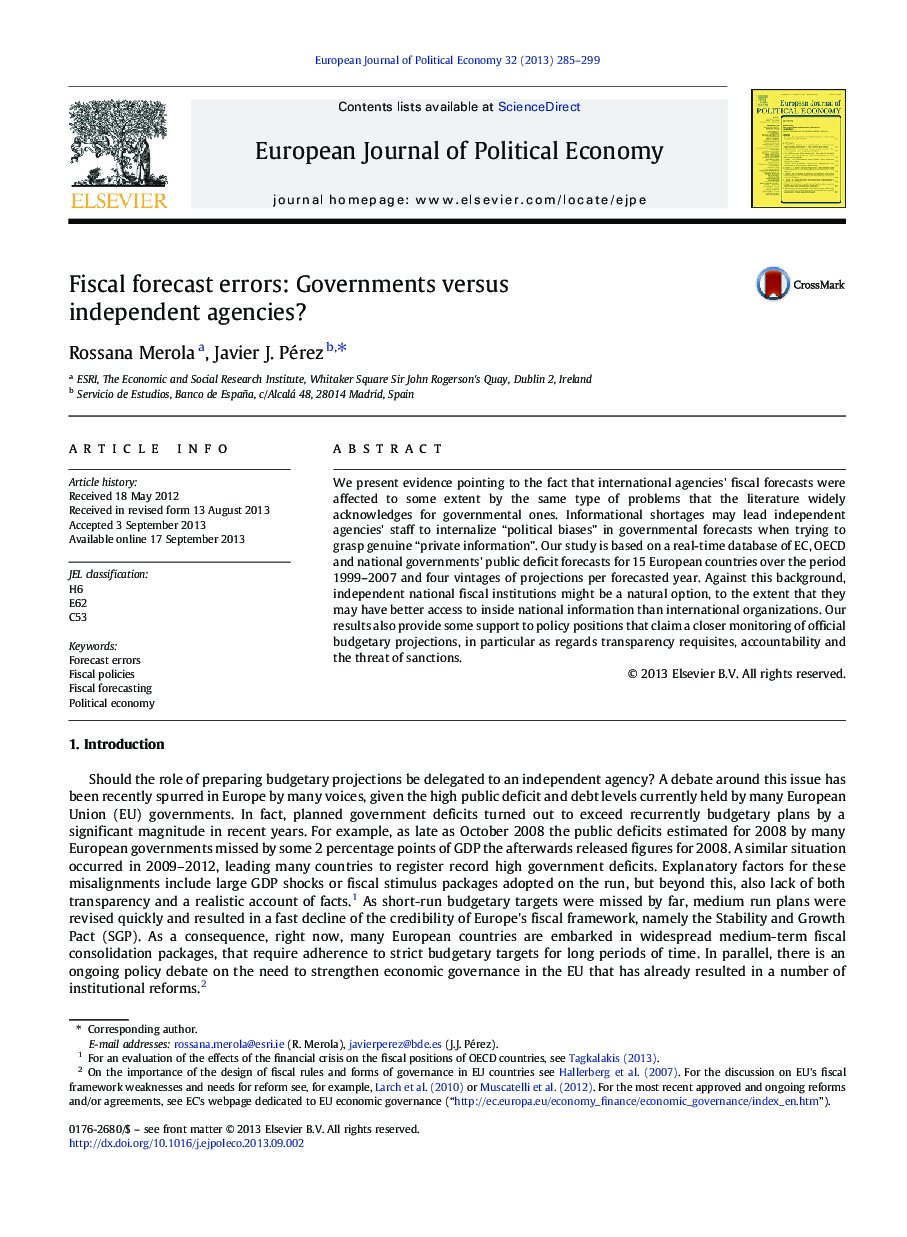| Article ID | Journal | Published Year | Pages | File Type |
|---|---|---|---|---|
| 5068024 | European Journal of Political Economy | 2013 | 15 Pages |
â¢International agencies' fiscal forecasts are correlated with electoral cycles.â¢The influence of elections is stronger in the case of governments' forecasts.â¢Access to private national information should be granted to independent institutions.â¢Monitoring of official projections should strengthen transparency and accountability.
We present evidence pointing to the fact that international agencies' fiscal forecasts were affected to some extent by the same type of problems that the literature widely acknowledges for governmental ones. Informational shortages may lead independent agencies' staff to internalize “political biases” in governmental forecasts when trying to grasp genuine “private information”. Our study is based on a real-time database of EC, OECD and national governments' public deficit forecasts for 15 European countries over the period 1999-2007 and four vintages of projections per forecasted year. Against this background, independent national fiscal institutions might be a natural option, to the extent that they may have better access to inside national information than international organizations. Our results also provide some support to policy positions that claim a closer monitoring of official budgetary projections, in particular as regards transparency requisites, accountability and the threat of sanctions.
